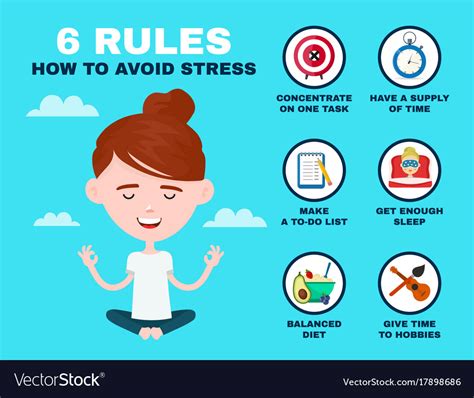
Worries often consume mental energy unnecessarily; recognizing and relinquishing responsibility for certain situations can significantly reduce anxiety. Many individuals experience undue stress by feeling obligated to control outcomes or manage aspects of others’ lives that are ultimately beyond their influence, as highlighted by experts.
Unrealistic expectations and societal pressures frequently contribute to heightened anxiety levels, prompting individuals to assume responsibility for circumstances outside their direct control. Learning to differentiate between what can and cannot be influenced is crucial for effectively managing stress and improving overall well-being. This article examines four common sources of anxiety that individuals can release themselves from, leading to a more balanced and peaceful life. These include managing others’ emotions, controlling the opinions of others, predicting the future, and perfectionism.
1. Managing Others’ Emotions
One of the most pervasive sources of anxiety stems from the mistaken belief that we are responsible for the emotional states of those around us. Many individuals feel compelled to “fix” or alleviate the negative emotions of their friends, family members, or colleagues, leading to significant personal stress. This tendency is often rooted in empathy and a desire to support loved ones, but it can quickly become overwhelming and unsustainable.
According to experts, it is essential to recognize that each person is ultimately responsible for managing their own emotions. Attempting to control or manipulate another person’s feelings is not only ineffective but also disrespectful of their autonomy. “You are not responsible for how other people feel,” asserts licensed therapist Natalie Jambazian. She suggests that while offering support and empathy is valuable, it is crucial to establish boundaries and avoid taking on the burden of resolving others’ emotional issues.
This concept is particularly relevant in close relationships, where individuals may feel a strong sense of obligation to ensure their partner’s happiness. However, experts advise that true support involves listening and providing encouragement without attempting to dictate their emotional experience. By relinquishing the need to manage others’ emotions, individuals can free themselves from a significant source of anxiety and focus on their own well-being.
Licensed marriage and family therapist, Shirin Peykar, highlights the importance of detaching oneself from the emotional states of others: “It is not your job to make sure everyone is happy, and you will drive yourself crazy trying to control something you can’t.” Peykar emphasizes that attempting to control others’ emotions can lead to resentment and burnout, ultimately harming both the individual and their relationships. Instead, she recommends focusing on cultivating healthy communication and setting realistic expectations within relationships.
Furthermore, it is crucial to recognize that each person’s emotional journey is unique and personal. While offering support and empathy is beneficial, individuals must allow others to navigate their feelings without interference. This approach not only respects the other person’s autonomy but also fosters resilience and self-reliance.
2. Controlling the Opinions of Others
Another common source of anxiety is the desire to control how others perceive us. Many individuals spend considerable time and energy worrying about what others think of them, leading to self-doubt and insecurity. This preoccupation with external validation can be particularly pronounced in social settings, where individuals may feel pressure to conform to certain expectations or standards.
The reality is that it is impossible to control the opinions of others. People’s perceptions are shaped by a multitude of factors, including their own experiences, biases, and beliefs. Attempting to manipulate or influence these perceptions is not only futile but also exhausting. As Natalie Jambazian notes, “You cannot control what other people think of you, and trying to do so will only lead to frustration and disappointment.”
Instead of focusing on external validation, experts recommend cultivating self-acceptance and self-compassion. This involves recognizing one’s own strengths and weaknesses, accepting imperfections, and treating oneself with kindness and understanding. By developing a strong sense of self-worth, individuals can become less reliant on the opinions of others and more confident in their own skin.
Moreover, it is essential to recognize that not everyone will like or agree with us, and that is perfectly acceptable. Trying to please everyone is an unrealistic and unsustainable goal that can lead to feelings of inadequacy and resentment. Instead, individuals should focus on building authentic relationships with people who value and appreciate them for who they are.
Shirin Peykar suggests that individuals should ask themselves, “Is it more important to live authentically or to try and mold yourself into what you think others want you to be?” She emphasizes that true happiness comes from living in alignment with one’s values and beliefs, rather than seeking external approval.
3. Predicting the Future
The human brain is naturally inclined to predict the future, but excessive worrying about what might happen can lead to significant anxiety. Many individuals find themselves trapped in cycles of “what if” thinking, imagining worst-case scenarios and feeling overwhelmed by uncertainty. This tendency, often referred to as anticipatory anxiety, can be particularly debilitating, preventing individuals from enjoying the present moment and taking risks.
While it is natural to plan for the future, it is crucial to recognize that we cannot control or predict every outcome. Life is inherently unpredictable, and unexpected events are bound to occur. Attempting to anticipate and prepare for every possible scenario is not only exhausting but also ultimately futile. As Natalie Jambazian points out, “The future is uncertain, and trying to predict it will only lead to unnecessary stress and anxiety.”
Instead of dwelling on potential future problems, experts recommend focusing on the present moment. This involves practicing mindfulness, which is the ability to pay attention to one’s thoughts, feelings, and sensations without judgment. By focusing on the here and now, individuals can reduce their anxiety and appreciate the present moment.
Furthermore, it is essential to recognize that worrying about the future does not prevent negative events from occurring. In fact, it can often make them seem more likely or more severe. Instead of engaging in excessive worrying, individuals should focus on taking proactive steps to prepare for potential challenges. This might involve developing contingency plans, building resilience, and seeking support from others.
Shirin Peykar suggests that individuals should challenge their negative thoughts about the future. “Ask yourself, ‘What is the evidence for this prediction? Is there another way to look at the situation?'” By questioning their assumptions and considering alternative perspectives, individuals can reduce their anxiety and develop a more realistic outlook.
Additionally, it is important to cultivate a sense of trust in oneself and the universe. This involves believing that one has the resources and abilities to cope with whatever challenges may arise. By fostering a sense of self-efficacy, individuals can reduce their anxiety and face the future with greater confidence.
4. Perfectionism
Perfectionism is the relentless pursuit of flawlessness and the belief that one must be perfect to be worthy. This mindset can lead to significant anxiety, as individuals constantly strive to meet unattainable standards and fear making mistakes. Perfectionists often set unrealistic goals for themselves and others, leading to feelings of inadequacy, disappointment, and burnout.
The reality is that perfection is an illusion. No one is perfect, and everyone makes mistakes. Attempting to achieve perfection is not only impossible but also detrimental to one’s mental and emotional health. As Natalie Jambazian notes, “Perfectionism is a trap that leads to constant dissatisfaction and anxiety.”
Instead of striving for perfection, experts recommend embracing imperfection. This involves accepting that mistakes are a natural part of life and that they can be valuable learning opportunities. By reframing mistakes as opportunities for growth, individuals can reduce their anxiety and develop a more compassionate attitude towards themselves.
Furthermore, it is essential to set realistic goals and expectations. This involves recognizing one’s limitations and focusing on progress rather than perfection. By breaking down large tasks into smaller, more manageable steps, individuals can reduce their anxiety and increase their chances of success.
Shirin Peykar suggests that individuals should ask themselves, “What is the worst that could happen if I make a mistake? Is it really as bad as I think it is?” She emphasizes that often the consequences of making a mistake are far less severe than perfectionists imagine.
Additionally, it is important to cultivate self-compassion. This involves treating oneself with kindness and understanding, especially during times of failure or disappointment. By practicing self-compassion, individuals can reduce their anxiety and develop a more resilient mindset.
Moreover, focusing on the process rather than the outcome can help reduce the pressure to be perfect. Enjoying the journey and learning from the experience can be more fulfilling than achieving a flawless result.
Strategies for Relinquishing Responsibility
Relinquishing responsibility for the emotions of others, their opinions, the future, and the pursuit of perfection requires conscious effort and a shift in mindset. Several strategies can aid in this process:
-
Self-Awareness: Recognizing the specific areas where you tend to assume unnecessary responsibility is the first step. Journaling or talking with a therapist can help identify these patterns.
-
Setting Boundaries: Clearly define your limits and communicate them to others. This includes saying no to requests that are beyond your capacity or that infringe upon your well-being.
-
Challenging Thoughts: When you notice yourself worrying about something outside of your control, challenge the underlying thoughts. Ask yourself if there is evidence to support your concerns or if you are making assumptions.
-
Practicing Mindfulness: Focusing on the present moment can help reduce anxiety about the future and the opinions of others. Mindfulness techniques, such as meditation or deep breathing, can be incorporated into daily routines.
-
Self-Compassion: Treat yourself with the same kindness and understanding that you would offer a friend. This includes acknowledging your imperfections and accepting that mistakes are a part of life.
-
Seeking Support: Talking with a therapist, counselor, or trusted friend can provide valuable support and guidance in relinquishing unnecessary responsibility.
-
Cognitive Restructuring: Learning to reframe negative thoughts into more positive and realistic ones can significantly reduce anxiety. This involves identifying and challenging cognitive distortions, such as catastrophizing or all-or-nothing thinking.
-
Time Management: Effective time management can help reduce stress and anxiety by prioritizing tasks and breaking them down into manageable steps. This can also help individuals feel more in control of their lives and less overwhelmed by responsibilities.
-
Delegation: Learning to delegate tasks to others can free up time and energy for more important priorities. This also involves trusting others to complete tasks effectively and accepting that they may do things differently.
-
Acceptance: Accepting that some things are simply beyond one’s control is a crucial step in reducing anxiety. This involves letting go of the need to control every aspect of life and trusting that things will work out in the end.
By implementing these strategies, individuals can gradually relinquish unnecessary responsibility and cultivate a more balanced and peaceful life.
The Broader Impact of Reduced Anxiety
The benefits of relinquishing unnecessary responsibility extend beyond individual well-being. When individuals are less burdened by anxiety, they are better able to focus on their own goals and aspirations, leading to increased productivity and fulfillment. Furthermore, reduced anxiety can improve relationships by fostering healthier communication and reducing the likelihood of conflict.
In the workplace, employees who are less stressed and anxious are more likely to be engaged, creative, and productive. This can lead to a more positive and collaborative work environment. Additionally, leaders who are able to manage their own anxiety are better equipped to support their teams and make sound decisions.
In society as a whole, a reduction in anxiety can contribute to greater social cohesion and well-being. When individuals are less focused on their own worries and anxieties, they are more likely to engage in acts of kindness and compassion, fostering a more supportive and empathetic community.
Conclusion
Anxiety is a common and often debilitating emotion that can significantly impact an individual’s quality of life. However, by recognizing and relinquishing unnecessary responsibility for the emotions of others, their opinions, the future, and the pursuit of perfection, individuals can significantly reduce their anxiety levels and improve their overall well-being. As experts emphasize, it is crucial to focus on what is within one’s control and to accept that some things are simply beyond one’s influence. By implementing the strategies outlined in this article, individuals can cultivate a more balanced, peaceful, and fulfilling life.
Ultimately, the journey to reducing anxiety is a personal one that requires self-awareness, commitment, and a willingness to challenge ingrained beliefs and behaviors. However, the rewards are well worth the effort, as a life free from unnecessary anxiety is a life filled with greater joy, peace, and purpose.
Frequently Asked Questions (FAQs)
1. Why do I feel responsible for other people’s emotions?
Feeling responsible for other people’s emotions often stems from empathy and a desire to support loved ones. However, it can also be influenced by societal expectations or past experiences where you were conditioned to believe that your worth is tied to the happiness of others. It’s important to recognize that while offering support is valuable, each person is ultimately responsible for managing their own emotional state.
2. How can I stop worrying about what others think of me?
Stop worrying about what others think of you by cultivating self-acceptance and self-compassion. Focus on your own values and beliefs, and strive to live authentically. Remember that it’s impossible to please everyone, and not everyone will like or agree with you. Building strong relationships with people who value and appreciate you for who you are can also help reduce your reliance on external validation.
3. What are some practical techniques for managing anticipatory anxiety about the future?
Managing anticipatory anxiety involves focusing on the present moment through mindfulness practices like meditation or deep breathing. Challenge negative thoughts about the future by questioning the evidence supporting those predictions. Develop contingency plans for potential challenges and cultivate a sense of trust in your ability to cope with whatever arises.
4. How can I break free from perfectionism?
Break free from perfectionism by embracing imperfection and accepting that mistakes are a natural part of life. Set realistic goals and expectations, and focus on progress rather than perfection. Practice self-compassion and treat yourself with kindness and understanding, especially during times of failure or disappointment. Shift your focus from the outcome to the process, enjoying the journey and learning from the experience.
5. When should I seek professional help for anxiety?
Seek professional help for anxiety if it is significantly impacting your daily life, relationships, or ability to function. Symptoms such as persistent worry, difficulty sleeping, panic attacks, or avoidance of social situations warrant consulting a therapist or counselor. They can provide personalized strategies and support to manage your anxiety effectively.
Word Count: 2250









